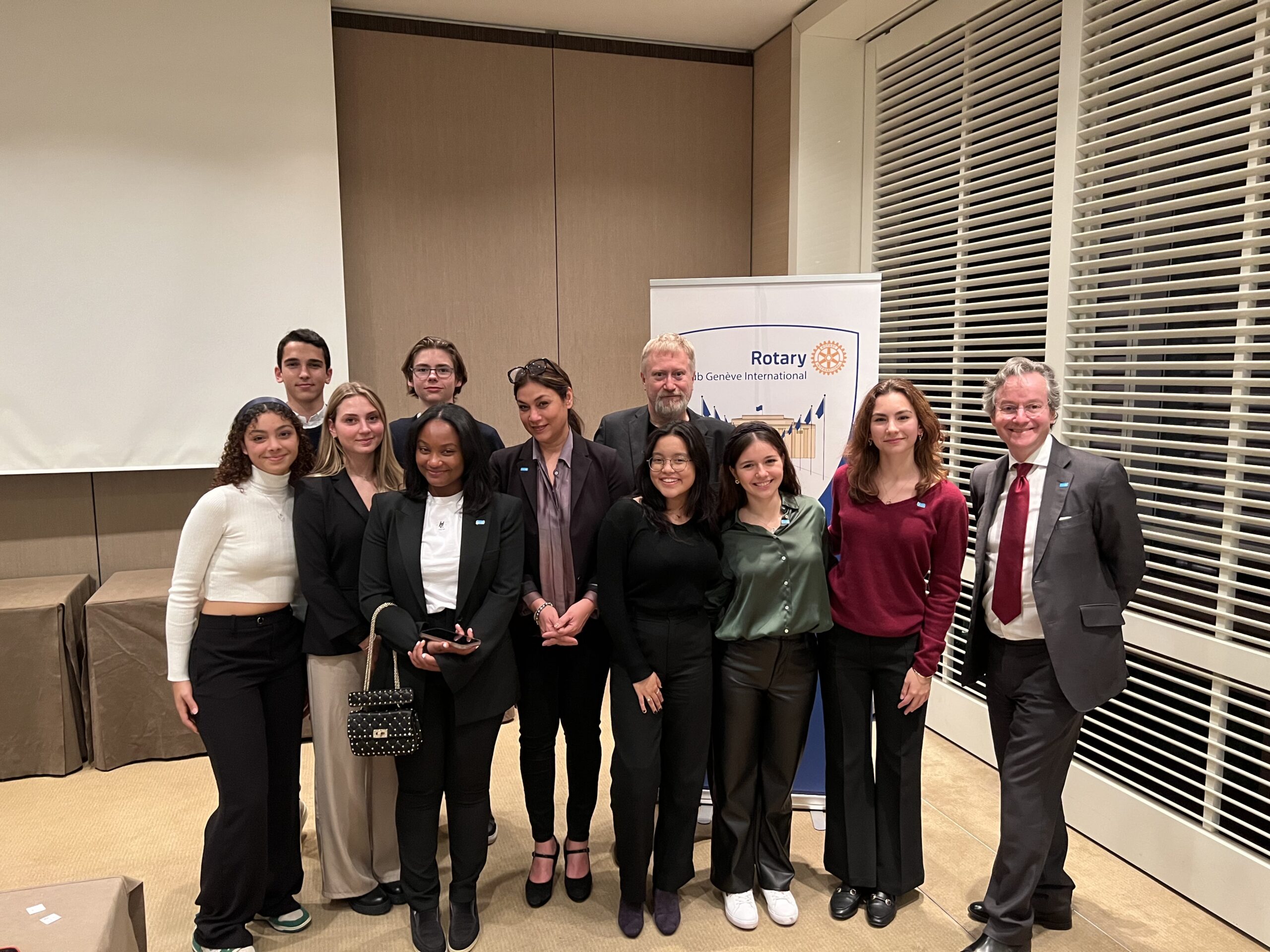By Claire Hines, Year 11
The Extended Support Program gives students with special needs the assistance they require to thrive in their academic and social environment, and to improve their understanding. For the purpose of this article, I interviewed a few of the teachers who collaborate with the E.S.P. by welcoming its students into their own classes in order to contribute to their learning.
1. How did you first start working with the E.S.P.?
Mrs. Reid: “I used to work in the E.S.P. So, I trained to be a primary school teacher, and then my first job was at Nations, working in their learning support for six months in their primary section. And then when they were looking for an E.S.P. assistant at secondary here, I applied and I got the job. So, I supported in ESP for two years and then I started teaching Geography, and then I did one year where I was teaching Geography and in ESP. Now I teach just Geography but I volunteer and I have a lot of ESP students come into my class.”
Mrs. Hochet: “I arrived at Ecolint four years ago and every year I’ve worked with ESP students and staff in my classroom. In my previous school, I also worked with ESP students but we didn’t have extra support. I remember working with a deaf girl with a hearing aid as a language teacher, it was difficult at times. I learnt a lot though. That’s why I think we are so very lucky to work with such a dedicated ESP team whose support and insights are invaluable for both students and teaching staff.”
Mr. Power: “For a couple of years I never had a student from ESP and then they started being in my classes. I had heard from other teachers that they were around, but it was a couple of years down the line before I had my first ESP student. There was no problem at all, they just arrived at the classroom and I talked to the ESP teacher supporting them and that’s how they first arrived at my class.”
2. What do you teach these particular students, and how do you do so?
Mrs. Reid: “It depends on the student. Each ESP student has their own particular and unique needs so I rely a lot on the ESP department guiding me, and if I am honest, they are super helpful. They explain to me how best to help their students, so, it’s more them helping me than me helping them. So, it’s really important to have a good open relationship with the person supporting them. But with regards on how to break tasks down, obviously we have to do that to make them more accessible for the student, and for that I think the ESP department is brilliant because they really take that weight off my shoulders; and I know that not all ESP support departments always do that, but I think we’ve got a really good one here.”
Mrs. Hochet: “I teach French B and A. But in general, I think we are trying to teach ESP and all students to have ownership of their learning. I also highly encourage collaboration between students. For all students, I think it is important to walk around the classroom, see how they are doing, and give personalised feedback. So, teamwork, 1 to 1 conversations, and encouraging students to become independent learners in the classroom are methods I use in my everyday teaching.”
Mr. Power: “Essentially in English they don’t learn anything different from what the others are learning. They get the same material, they get exposed to the same audio or visual material, the same books… They work with the class according to what they can do, and we soon find out what their limits are and the ESP teacher can always adapt materials for them.
The reasons they can and do come to the classes, fundamentally it’s because they need to integrate the mainstream classes and so we try and make sure that they are getting exposed to the same material. One of the ways that one can adapt to the needs of these students is by targeting questions that we know are within their reach.”
3. How do you help these students integrate into your classes?
Mrs. Reid: “It’s easier with some students than others to be honest. Partly, it’s not treating them differently to the other students. So, by that I mean I’ll still call on them to answer questions just like I would with other students. Sometimes it’s good to put them into groups to work with other students, but some students prefer not to do that so I take guidance from the ESP department for that. But as much as they are willing to, I’ll put them into working groups and call on them, and treat them the same as other students.”
Mrs. Hochet: “As I mentioned, collaborative work happens regularly in my classroom. I think most of our students are open-minded and tolerant, and they usually work well in groups with diversity. So, I encourage pair or team work.”
Mr. Power: “I try to get them to work on whatever needs to be worked on and the ESP teacher’s role as well is to re-interpret what is required in comprehension or to transcribe their answers or just to help me understand them. And of course, when there’s a class discussion, I ask everyone questions including the ESP students. There is absolutely no reason why they can’t participate in all these interactive moments. They integrate by their presence and by getting exposed to the same work, and by hearing the same stories that I give the rest of them.”
4. Do you find it rewarding to work with them?
Mrs. Reid: “Definitely. It’s definitely rewarding to work with the students, and it’s rewarding to work with the whole department. You can get quite closed off in your own little department working with the same staff members, but if you’re working with ESP students, obviously the students themselves are lovely, but you also get to work with a wide variety of staff members which is fantastic.”
Mrs. Hochet: “I think seeing them grow and develop from Year 9 to Year 13 is the most rewarding. As I said, they have a team of fantastic people working really hard with them in class and 1 to 1’s. They really make a difference in the life of those students.”
Mr. Power: “The reward is a much more global issue. It’s of course always rewarding when any student achieves something, regardless of what level they are operating at. For me the reward is when someone can do something at the end of a day, or a month, or a year that they couldn’t do before.
There are some great moments with the ESP students, for example one of them, years ago passed his IB and he worked hard. The reward is also in the teamwork with the ESP team. They are a fantastic team and the interactions with them are so enriching. I’ve learnt so much about how to teach, and how to adapt my teaching from having these students in my class and from talking to the professional ESP teachers who are taking care of these students every day. And they deal with them at not just an academic but also a social level. So I’d say the reward is in learning so much firstly from teachers and also through my interactions with the students.”



